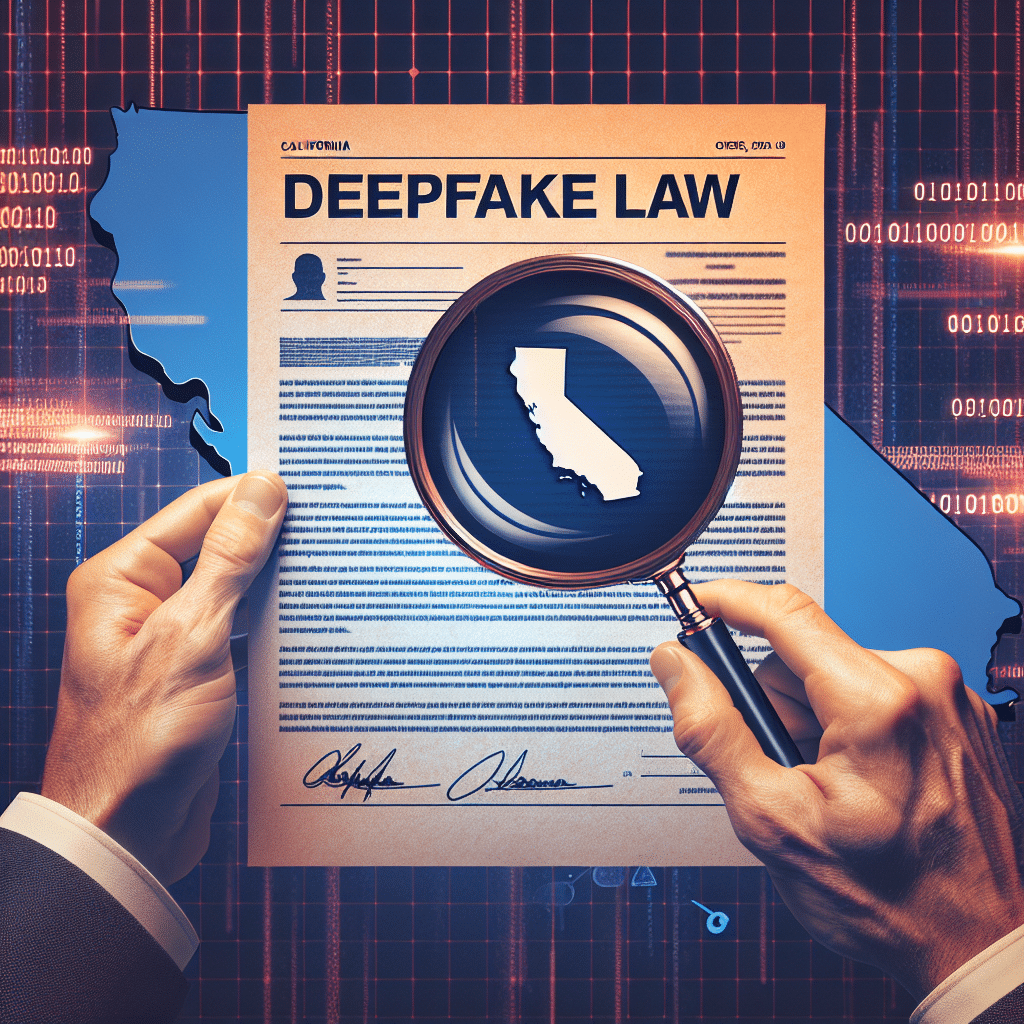In a significant stride toward safeguarding the integrity of electoral processes, California’s leadership has made a resolute stand against the dissemination of deceptive digital content, often referred to as deepfakes. This decisive action, particularly aimed at deepfake election content, underscores a critical turning point in the intersection of technology and governance. Through the enactment of three pivotal bills, the Golden State is setting a precedent for other jurisdictions to follow, fortifying its defenses against digital manipulation that threatens the democratic process.
Battling Deepfake Election Content: California’s Legislative Response
Within the buzzing atmosphere of a San Francisco conference, Governor Gavin Newsom executed a significant legislative maneuver aimed at curbing the proliferation of deepfake content that has the potential to undermine the sanctity of elections. These deepfakes, which utilize sophisticated artificial intelligence to create convincingly false images, videos, and audio recordings, pose a burgeoning threat to the democratic practice of informed voting. The legislation signed into law addresses this modern challenge, reflecting a nuanced understanding of the implications technology holds for democracy.
Understanding the Impact of Deepfakes on Elections
The phenomenon of deepfakes is not merely a technical curiosity; it is a formidable challenge to the principles of trust and transparency that underpin electoral systems. By fabricating content that can deceive voters, manipulate public opinion, and sow discord, deepfakes represent a direct assault on the informational foundations of democratic decision-making. California’s legislative initiative seeks to mitigate these risks by creating robust legal frameworks that deter the creation and distribution of deceptive digital concoctions. This endeavor highlights an acknowledgment of the sophistication of modern disinformation tactics and the necessity for equally sophisticated countermeasures.
California Leads the Way in Electoral Integrity
With the signing of these three bills, California emerges as a pioneer in the battle against digital disinformation within the electoral sphere. This move not only demonstrates the state’s commitment to maintaining the principles of fair and free elections but also serves as a beacon for other states and countries grappling with similar challenges. By leveraging legislative power to confront emerging threats, California positions itself at the forefront of safeguarding electoral integrity in the digital age. This proactive approach signifies a new chapter in the evolution of democracy, one that recognizes and addresses the complexities introduced by rapid technological advancement.
The Path Forward: An Intersection of Technology and Legislation
The enactment of these bills is not an end but a beginning—a foundational step towards evolving our legal and societal norms to keep pace with the advancing frontiers of technology. This legislative action invites a broader discourse on how democracies can adapt to and overcome the challenges posed by digital innovation. It also raises pertinent questions about the balance between freedom of expression and the protection of public trust in the electoral process. As technology continues to permeate every facet of our lives, the experience of California offers valuable insights into how societies might navigate the delicate interplay between innovation, regulation, and democratic values.
Summary: A Milestone in Protecting Democracy
In signing the legislation against deepfake election content, California sets a notable precedent in the fight to protect democratic integrity against digital threats. This legislative milestone reflects a deep understanding of the complexities at the intersection of technology and democracy. As the digital landscape evolves, the actions taken by California underscore the necessity of adaptive legislative frameworks that can address the intricacies of modern disinformation. By spearheading these efforts, California not only protects its own electoral processes but also paves the way for a collective response to one of the most pressing challenges facing democracies in the digital age.
The initiative taken by California to legislate against deepfake content serves as an illustrative example of how jurisdictions can confront the challenges posed by digital advancements to ensure that the cornerstone principles of democracy are preserved. This proactive measure highlights the importance of vigilance, innovation, and adaptability in the ongoing effort to uphold electoral integrity in the face of evolving technological threats.
In summation, California’s response to deepfake election content represents a significant advancement in the nexus of technology, legislation, and democratic safeguards. As we move forward, the lessons learned from this approach can inform global strategies to fortify democratic institutions against the risks posed by digital disinformation, ensuring that technology serves to enhance rather than undermine the principles of democracy.
